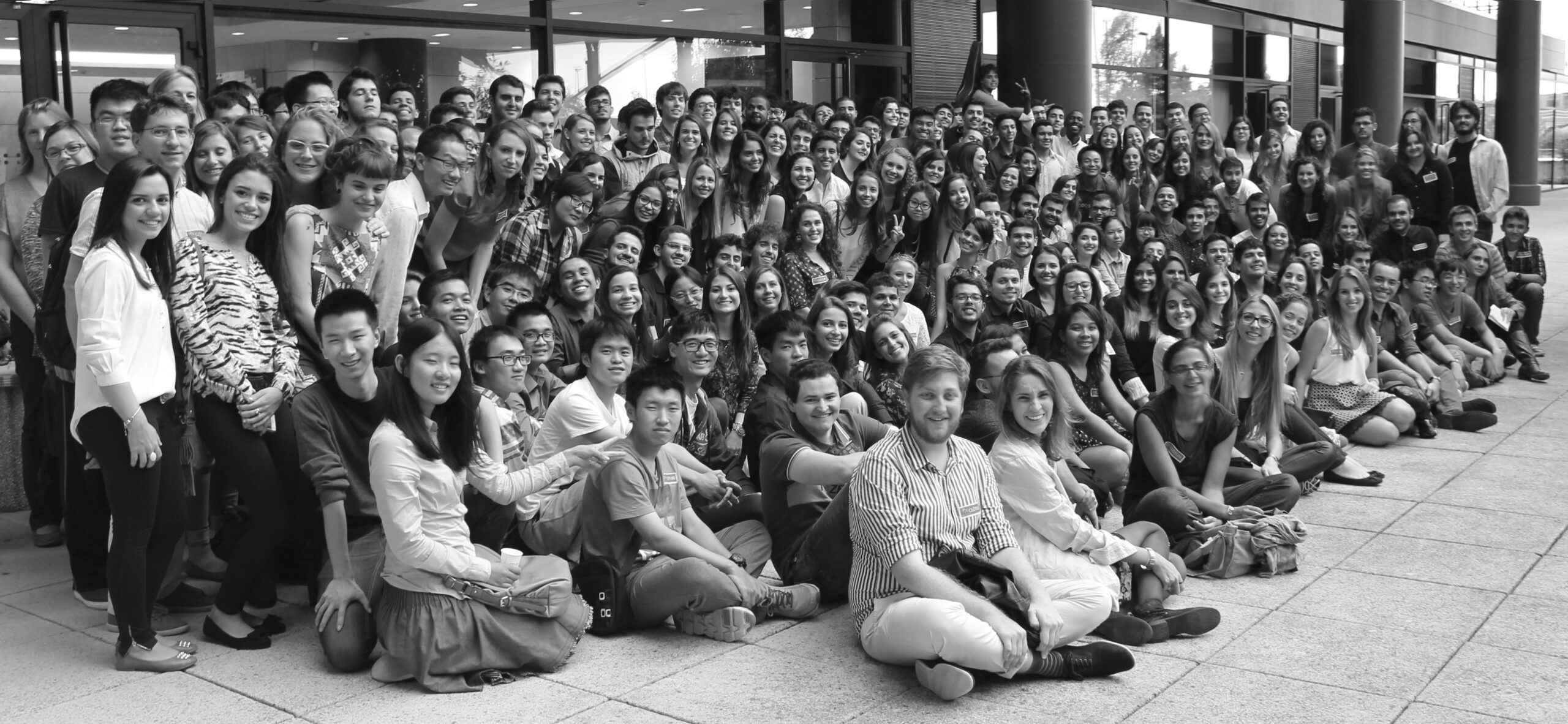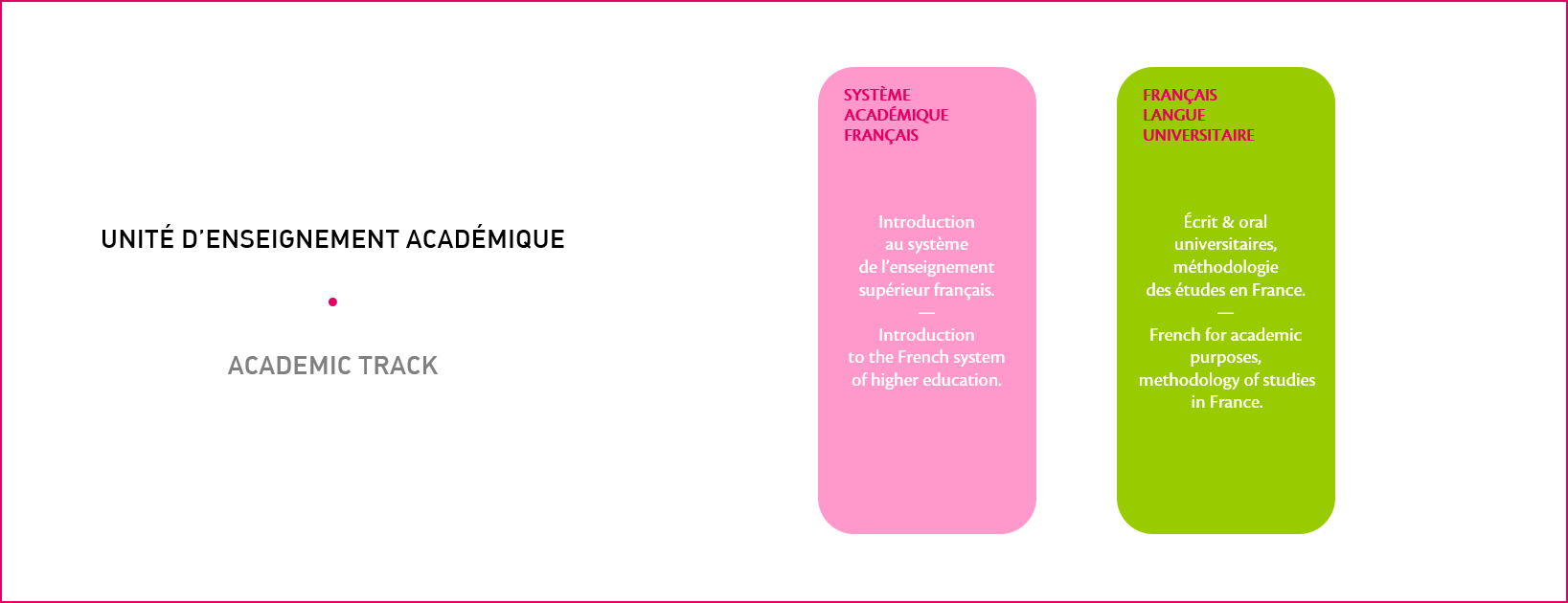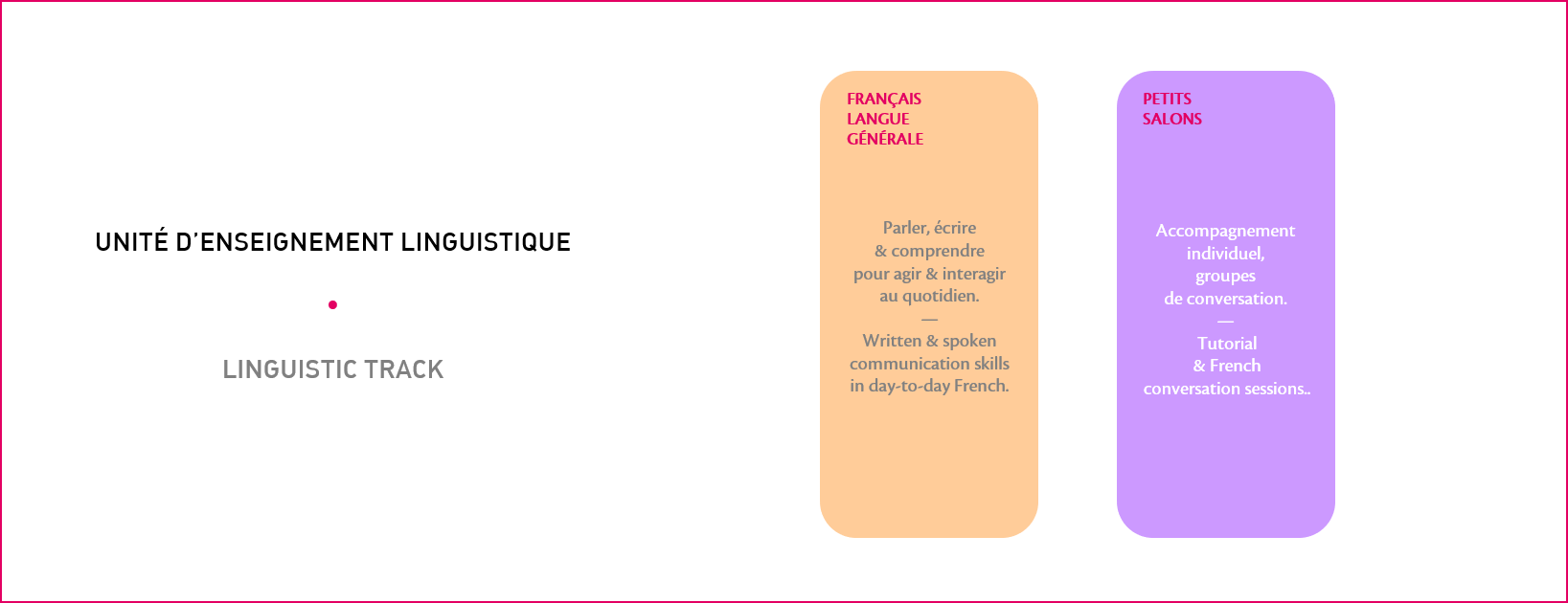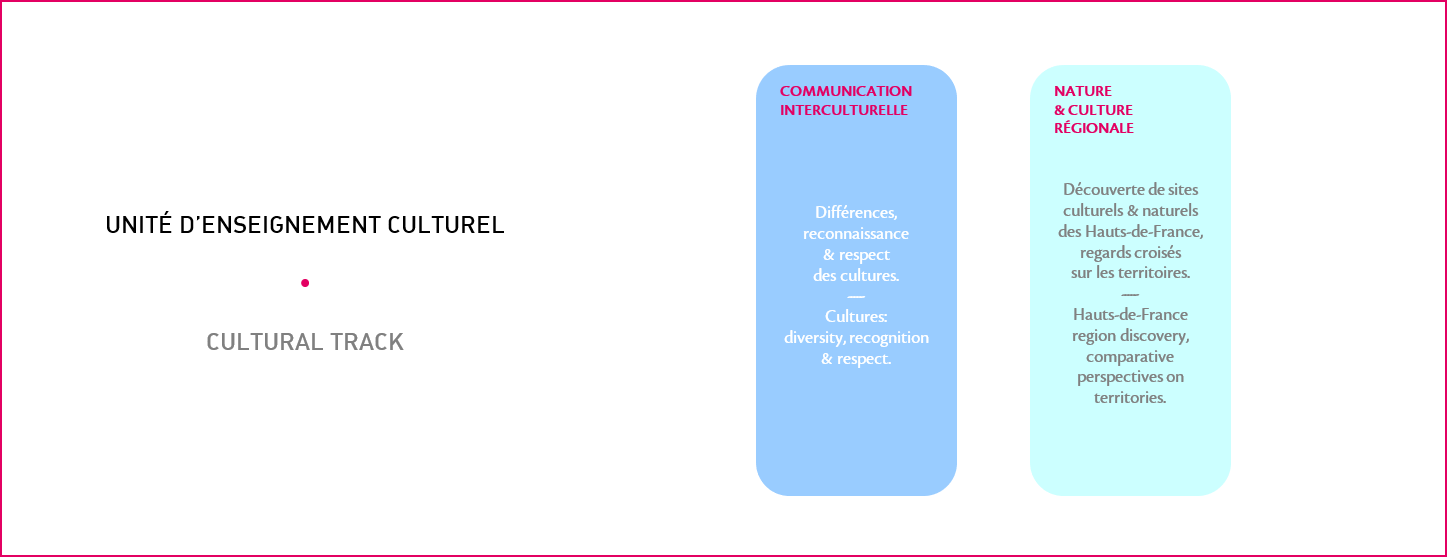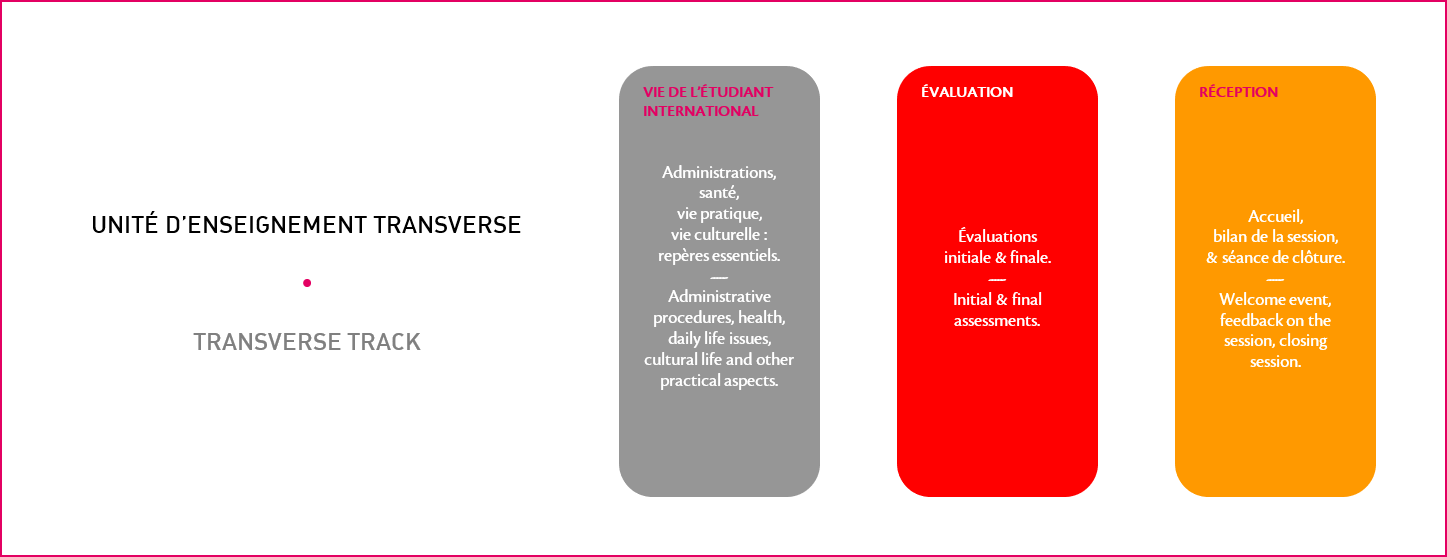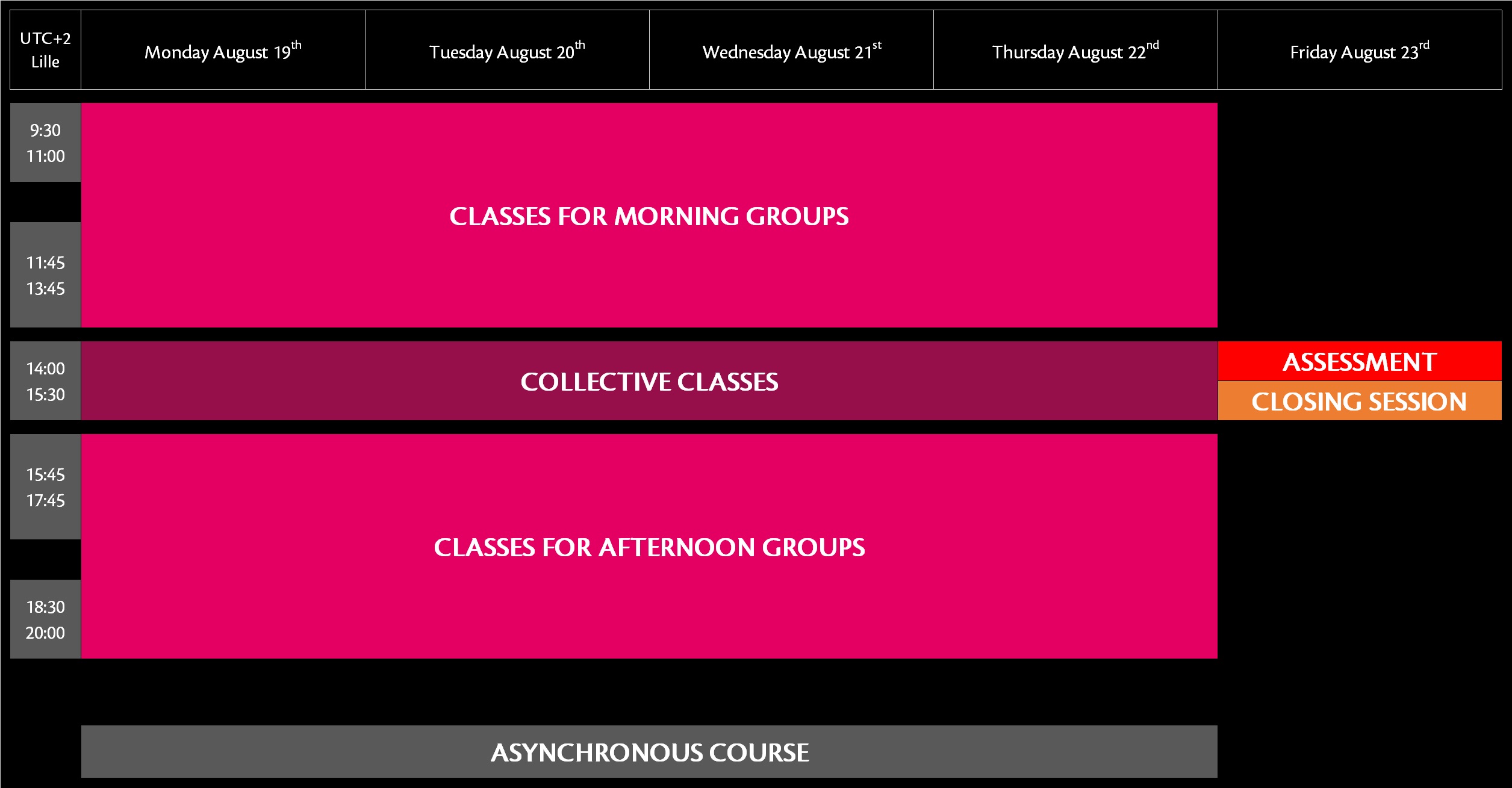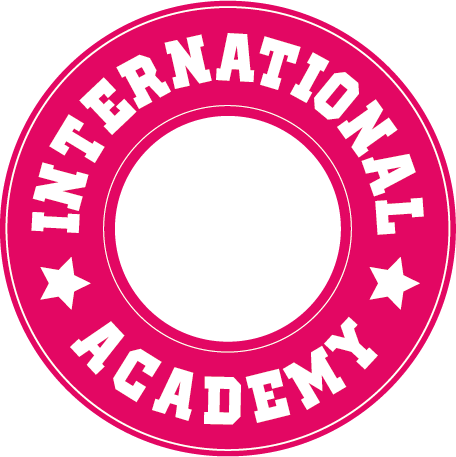Content Outline
A gateway into French higher education for international students. French for foreigners (beginners to advanced), linguistic practice, methodology for academic purposes, educational and administrative environment, regional culture and extracurricular life, cross-cultural interaction.
From conception to implementation, everything is coordinated by the Territorial Mission for International Relations of the University of Lille, the language teachers and other academics, together with the participation of the higher education international offices and regional institutions concerned. The quality of training and its relevance are all the more guaranteed by this pooling of resources.
Content Description
Description of the 9 teaching units.
Minor modifications to the programme described below may occur.
-
1.5 h
FRENCH ACADEMIC SYSTEM
Understanding the academic world you are to enter.
Most students are familiar with their own university system. Still, do you know the French grading system? or how to measure your training in ECTS credits? and what makes the difference between universities and Grandes écoles? This unit will allow you to discover the specificities of the French education system and its attractivity, through a presentation of historical reasons that led to this particularity. -
4.5 h
METHODOLOGY FOR STUDIES IN FRANCE
You will acquire the basic French methodological principles that are necessary when integrating a French higher education institution:
• Raise a general question;
• Understand the methodology of the introduction, the body and the conclusion;
• Structure and summarise a speech. -
1.5 h
PETITS SALONS
Sessions of discussions, leisure activities or language reinforcement, in small groups supervised by a facilitator.
On various topics, you will be able to practice French via guided or spontaneous communication and take part in informal and friendly exchanges in French. These activities, which are in keeping with the French tradition of conversation and debate, aim to enrich your lexicon and socio-cultural knowledge in French, develop your inter/pluricultural skills and improve your oral fluency. -
9 h
GENERAL FRENCH
French for Foreigners (FLE): general written and spoken French – syntax, morphology, vocabulary.
This course will enable you to strengthen your linguistic knowledge and improve your communication skills in day-to-day French, based on the use of authentic documents, and favouring a variety of themes. You will learn how to interact and will get involved in French culture through appropriate and various activities in connection with daily life.
A preliminary test will enable your placement in small groups of homogeneous language level to favour an optimal language acquisition. -
3 h
INTERCULTURAL COMMUNICATION
An introduction to elements of intercultural communication: uniformity, difference and diversity.
Using the 4 Rs framework of Fons Trompenaars, the participants will learn to recognise cultural differences and to respect them in the way that they communicate, work and relate to others on a daily basis. The course will focus on recognising what culture is, especially the cultures of the different participants and the culture they will discover in France.
The starting point of the course will be the claim by the American anthropologists Kluckhohn and Strodtbeck that, throughout the world, people are confronted with the same questions but the way they respond to these questions is different, resulting in a world of diversity.
Questioning. Where appropriate, students will be asked to observe their new environment and report on the culture shock they experienced in the host culture. Hence, they will be led to question their own acculturation strategies. -
1.75 h
NATURE & REGIONAL CULTURE
Discover natural and cultural sites of France, its agricultural and maritime lands, commercial and port cities, textile and mining industries – the large border region in reconversion, located halfway between Paris and Brussels.
“A building, a history”: decoding monuments, each representative of a key period, that will allow you to discover or better understand your host region and country.
We will travel through time together. Starting with the Middle Ages and going through the consequences of the 1914-1918 war and industrial prosperity, but also the mining activity up to the contemporary period which is marked by a major economic conversion. You will discover iconic buildings and places.
-
1.5 h
INTERNATIONAL STUDENT LIFE
Presentation of practical aspects of student life.
• French administration and life outside of studies.
Raising awareness of the codes in use in administrations. Overview of extracurricular life, typical everyday activities and daily need expenses. Tourism and outings. Useful information.
• Help and insights into an incoming mobility.
Essential resources to get one’s head around administrative procedures before and during an international mobility to France (visa and residence permit, health, housing assistance, university…). -
0.75 h
ASSESSMENT
Initial assessment. A placement test carried out before the training will enable us to tailor grammar topics and lexical contents and to identify specific needs.
Final assessment. A multiple choice final examination will measure the knowledge acquired in the following units:
• French Academic System
• Methodology for Studies in France
• Intercultural Communication
• Nature & Regional Culture
• International Student Life -
1.5 h
RECEPTIONS
These events are integrated in the programme.
• Welcome Session: Orientation & technical information.
• Closing Session: Final reception, student satisfaction survey, informal discussions on the programme.

